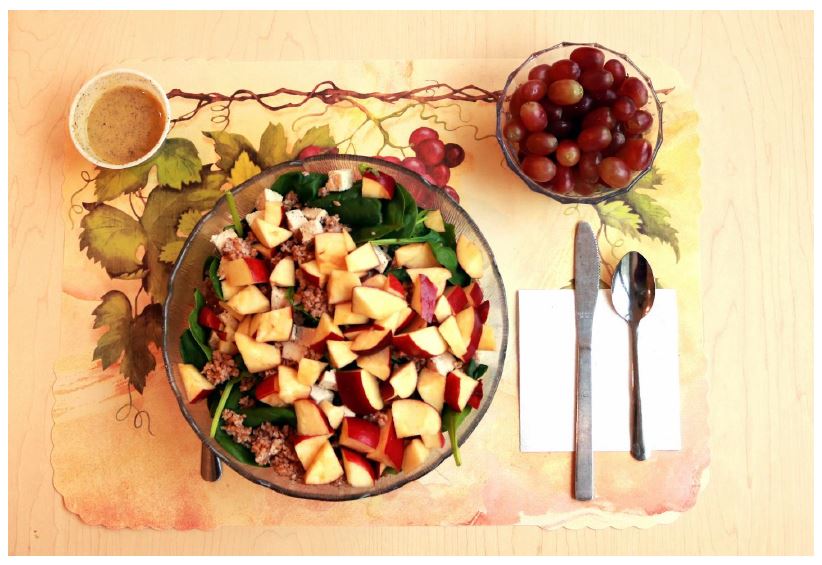Researchers at the U.S. National Institutes of Health wanted to know: do ultra-processed foods make us fatter?

While many diets and nutritional advice — including the Canada Food Guide — recommend avoiding highly processed foods, the researchers wrote that no randomized, controlled trials had ever been done to prove the link.
So they decided to do an experiment. Twenty people lived at the research hospital for about a month and were randomly assigned to eat a diet containing either ultra-processed foods or unprocessed foods for two weeks at a time, then the groups switched.
People on the ultra-processed diet ate things like pre-sliced white bread, fruit-flavoured yogurt, hot dogs and canned ravioli. The unprocessed diet had more fresh fruits and vegetables with eggs, grilled meats and plain yogurt.
According to the results, published this month in the journal Cell Metabolism, people eating the ultra-processed diet ate, on average, about 500 calories more every day than the unprocessed group and gained about two pounds over the course of two weeks. The unprocessed group lost the same amount of weight.
The meals that the two groups were given didn’t vary much by nutritional content or calories. People could eat as much or as little of the meal as they wanted. Because they were living in the hospital, their diets were closely controlled and their activity levels were monitored.
People just ate more of the ultra-processed food — and they ate it faster.
The researchers aren’t sure why.
“What we can say from our study, is that the differences in energy intake were not associated with reported differences in appetite, palatability or being familiar with one diet,” said Dr. Stephanie Chung, a co-author on the paper and the co-director of the Metabolic Research Program at the National Institute of Diabetes and Digestive and Kidney Diseases.

Get weekly health news
“We did find that meal-eating rate was higher in the ultra-processed diet, and this associated with more food consumed. It is possible that ultra-processed foods are easier to chew and swallow and that this could delay the satiety signals.”
More research is needed to determine whether the food’s texture made a difference, she said.
Ultra-processed foods and health
This small experiment showed a link between ultra-processed foods and weight gain. But there have been many studies that found correlations between ultra-processed food and a variety of health problems.
A pair of studies published Wednesday in the British Medical Journal found that eating ultra-processed food is associated with a higher risk of cardiovascular disease and an increased likelihood of all-cause mortality, with stronger risks the more ultra-processed foods people ate.
“When you compare them to non-ultra-processed foods, (ultra-processed foods) have a very low nutritional quality because they tend to be high in free sugar, sodium or saturated fat and they provide you with less protein, fibre, vitamins and minerals,” said Jean-Claude Moubarac, an assistant professor of nutrition at the Université de Montréal.
Almost all food is processed in some way; for example, pickling cucumbers, grinding flour, canning tuna and other such activities, he explained. What distinguishes ultra-processed food is its reliance on refined substances and additives.
The results, he said, are detrimental to health.
“They’re not fit for human consumption,” he said.
Eating a lot of ultra-processed food also means you’re eating less unprocessed food, which means that you’re missing out on its nutritional benefits, too, he said.
WATCH: The effect of processed foods on developing brains

But despite the health risks, Canadians eat a lot of it — just under half of our calories come from ultra-processed food, according to a recent study from Heart and Stroke.
Building a ‘more-ish’ snack
The enduring appeal of ultra-processed food is by design, according to an article and book by New York Times investigative journalist Michael Moss called Salt, Sugar, Fat — named after ingredients we all know and love. Companies engineered their foods to be as appealing as possible, with careful attention to details like the salt level or the exact crunch of a potato chip, he found in his research.
Flavourings, originally added to replace some of the natural flavours lost during processing, have been getting stronger and stronger, said Chris Lukehurst, research director of the Marketing Clinic, a U.K.-based marketing company that counts Dr. Pepper, Nestle and Kraft among its clients.
“What you will nearly always find is something that’s got a stronger flavour will perform better,” he said.
“We find that more attractive, initially, and it encourages us to eat more quickly.”
He gave the example of a potato chip.
“Typically, they will have quite an intense flavour to start with, which will then drop away,” he said. This encourages you to eat more chips to get back that same flavour intensity.
Natural flavours tend to be more “rounded and subtle,” he said, and develop best when chewed for a long time. “That, in the long run, is more satisfying.”
It’s not just about the taste, either, Lukehurst said, but how you feel about the food. Eating a giant chocolate bar instead of an apple might not make you feel good in the end, he suggested.
“It depends as to whether they do feel good after eating it or not as to whether they really keep going back to it,” he explained.
Francesco Leri, a professor of psychology at the University of Guelph who has studied the idea of “food addiction,” agrees that food is linked to emotions. A person chooses what they eat based on what they enjoy, what’s available, what they’re used to, what they have been told to want and what they have been told is healthy, he said.
“It’s a variety of elements,” Leri said.
Moving to simpler food
Ultra-processed food is also cheap, easy to prepare, convenient and has a long shelf life. For people lacking the time, energy and money to cook from scratch, switching to less-processed alternatives could be difficult, though Moubarac believes it’s within reach.
“The most expensive stuff in our diets is meat and milk products,” he said. “If you choose legumes and grains, these are not so expensive.”
He also hopes for changes in our food systems to make unprocessed meals more widely available, even to those who lack the time and means to cook them all themselves.
“I think we also need to think in terms of innovation, like how can we cook collectively? How can we make real food and real meals available everywhere?” he said.
“Parents could go and pick up their children at daycare and pick up the meal for the supper. I think once we agree that cooking is important then I’m sure that options will appear.”
Industry is moving towards less-processed foods, said Lukehurst, partly in response to consumer demand for healthier alternatives and more complex, natural-tasting flavours. But he doesn’t think that ultra-processed foods will disappear.
“The consumer, at the end of the day, is the final arbiter. If they buy it, people will keep making it,” he said.
“And as long as there is a market for cheap food, which there always will be, I think processing is the answer to that.”














Comments
Want to discuss? Please read our Commenting Policy first.